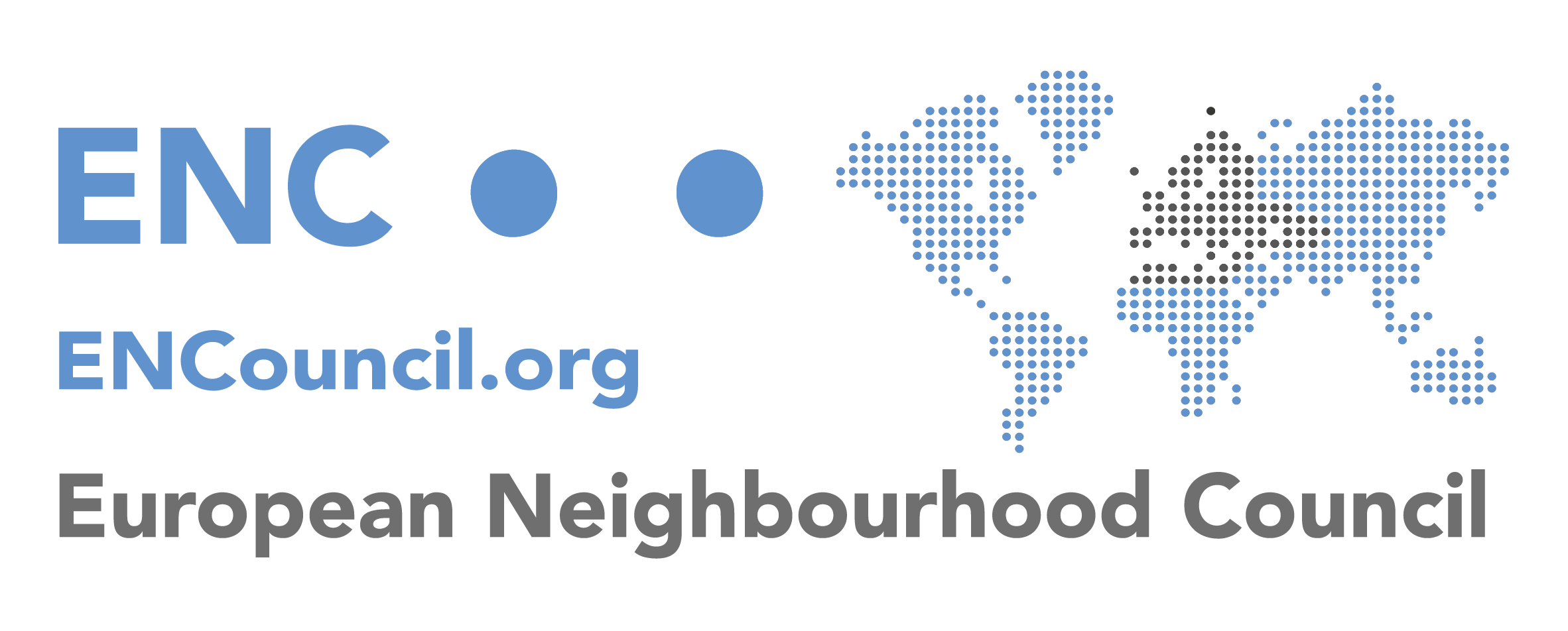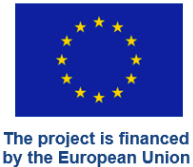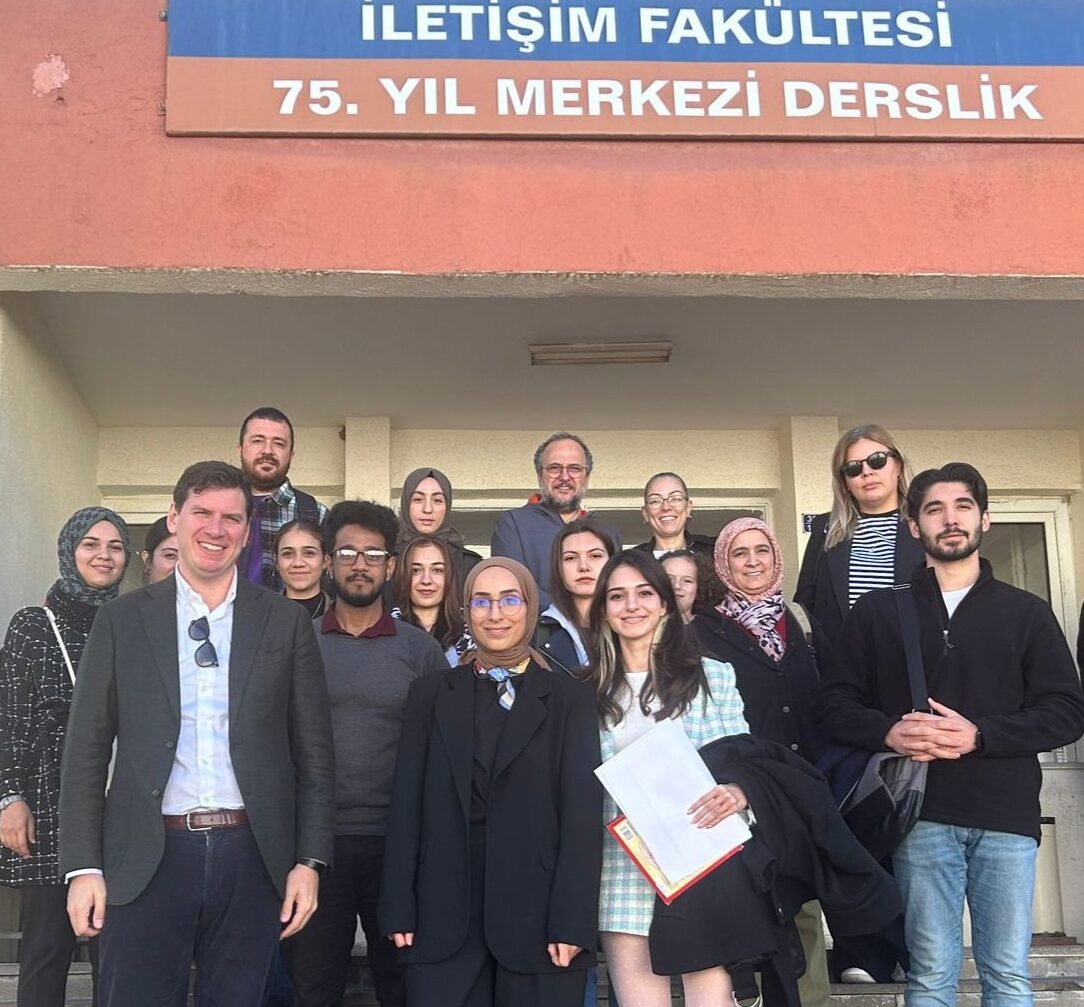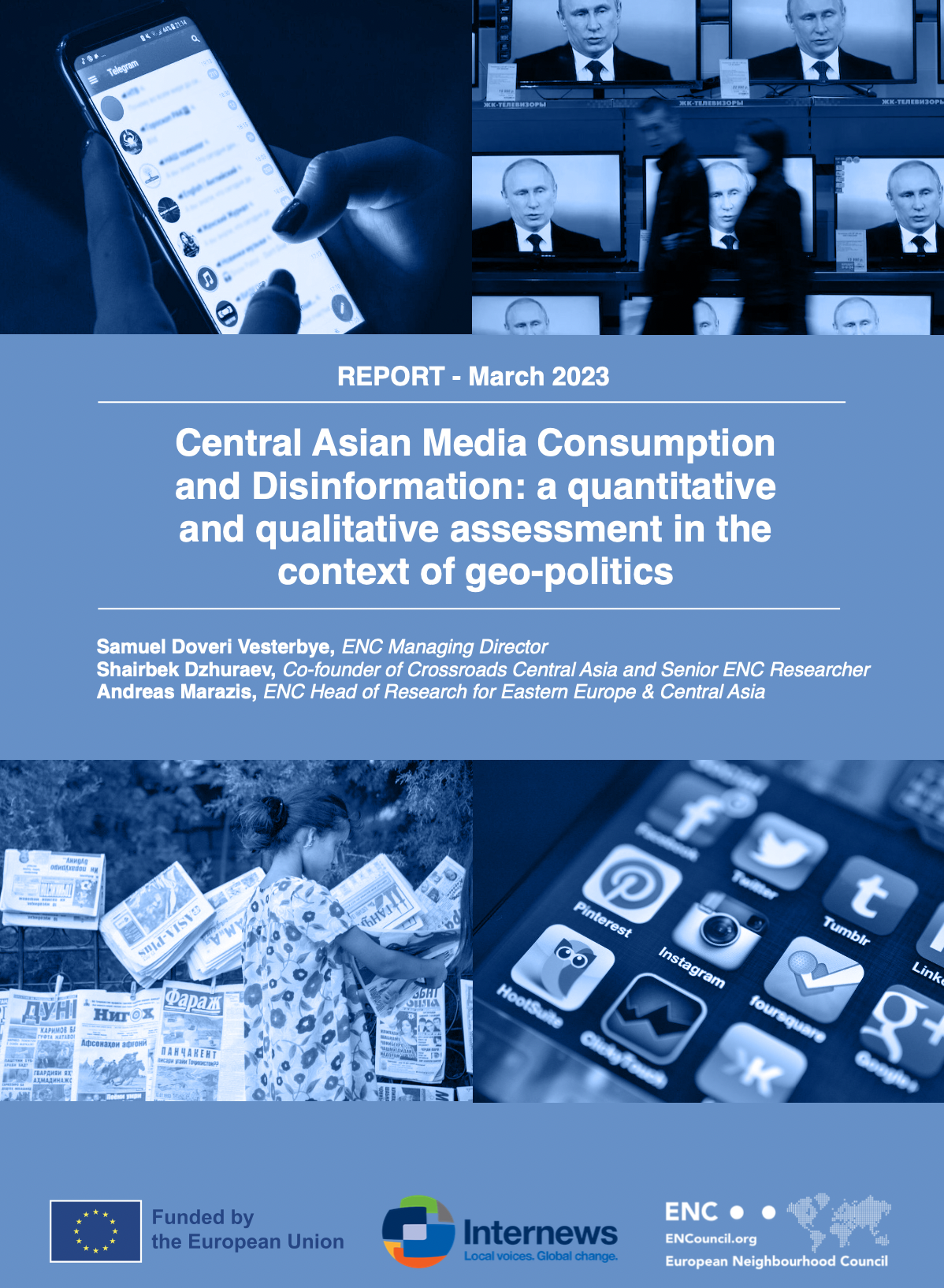
ENC and BHRTR Launch ‘TR Compass’ CSO Engagement Hub Following Conclusion of Phase II of Business and Human Rights Project
The European Neighbourhood Council (ENC) and the Business and Human Rights Association (BHRTR) have officially concluded the second phase of the “Strengthening Business and Human Rights Awareness and Capacity Building of Civil Society Actors – Phase II” project. As part of this phase, seven dialogue events were organized with Civil Society Organizations (CSOs). These events took place in İstanbul, Bursa, Adana, and Gaziantep, offering vital spaces for dialogue, capacity building, and engagement on the topic of business and human rights.
In addition to the dialogue events, the project featured a Closing Event held in İstanbul on 28 April 2025. The Closing Event served both as a showcase of the project’s achievements and as the official launch of TR Compass—a collaborative platform designed to strengthen civil society engagement in the field of business and human rights. A curated digital library of key resources is housed within the TR Compass website.
TR Compass is a voluntary and open network that brings together civil society organizations, trade unions, academics, and individual activists who are committed to promoting responsible business practices and protecting human rights in supply chains. Rather than functioning as a formal alliance, it serves as an open space for connection, knowledge-sharing, and mutual support—particularly in the context of legislation such as the German Supply Chain Act (Lieferkettensorgfaltspflichtengesetz – LkSG) and the EU Corporate Sustainability Due Diligence Directive (CSDDD).
Civil society organizations and individuals are invited to register through the CSO Engagement Hub to join the network, access resources, and stay informed about future opportunities and initiatives. Participation is entirely voluntary, with no membership fees or legal obligations—just a shared commitment to collaborative learning and action. Learn more about TR Compass here.
This phase of the project has contributed to strengthening the awareness, capacity, and coordination of civil society actors on business and human rights in Türkiye. The tools, networks, and platforms developed—particularly through the establishment of TR Compass—will support the continuity of dialogue and collaboration beyond the project timeline.
We extend our sincere thanks to all stakeholders and participants who contributed to this project.
Contact and Further Information
For more information about TR Compass:
https://trcompass.com.tr/en/
European Neighbourhood Council (ENC):
Website: http://encouncil.org/
Email: media@encouncil.org
Business and Human Rights Association (BHRTR):
Website: https://bhrtr.org/en/
Email: contact@bhrtr.orgcontact@bhrtr.org
ENC ve BHRTR, İş Dünyası ve İnsan Hakları Projesi’nin II. Fazını Tamamlayarak TR Compass STK İşbirliği Ağını Hayata Geçirdi
The European Neighbourhood Council (ENC) ve İş Dünyası ve İnsan Hakları Derneği (BHRTR), “Sivil Toplum Aktörlerinin İş Dünyası ve İnsan Hakları Alanındaki Farkındalığını ve Kapasitesini Güçlendirme Projesi’nin II. fazını başarıyla tamamladı. Almanya Dışişleri Bakanlığı ve Almanya İstanbul Başkonsolosluğu’nun desteğiyle yürütülen proje kapsamında, sivil toplum kuruluşları ve sendikaların katılımıyla bir web semineri de dahil olmak üzere yedi diyalog etkinliği düzenlendi. Bu etkinliklerde iş dünyası ve insan hakları konularında paydaş istişareleri gerçekleştirildi.
Proje süresince ayrıca, “TR Compass” Sivil Toplum Ağı’nın resmi tanıtımının yapıldığı bir kapanış etkinliği de İstanbul’da hayata geçirildi.
TR Compass, Türkiye’de iş dünyası ve insan hakları alanında çalışan sivil toplum kuruluşları, sendikalar ve akademisyenleri bir araya getirmeyi amaçlayan gönüllü ve esnek bir ağ olarak kuruldu. Ağ, özellikle Alman Tedarik Zinciri Yasası (Lieferkettensorgfaltspflichtengesetz – LkSG) ve Avrupa Birliği Kurumsal Sürdürülebilirlik Durum Tespiti Direktifi (Corporate Sustainability Due Diligence Directive – CSDDD) gibi güncel düzenlemeler çerçevesinde, ortak öğrenme ve dayanışmayı teşvik etmeyi hedefliyor.
TR Compass’ın internet sitesi üzerinden, ilgilenen paydaşlar form doldurarak ağa katılabiliyor. Site, aynı zamanda temel insan hakları belgelerini içeren dijital bir kütüphane, proje çıktıları ve etkinlik haberleri gibi çeşitli kaynaklara erişim imkânı sunuyor. Ağa katılım tamamen gönüllülük esasına dayalı olup herhangi bir üyelik ücreti ya da hukuki yükümlülük içermiyor.
Türkiye’de iş dünyası ve insan hakları alanında faaliyet gösteren sivil toplum aktörlerinin farkındalığını artırmayı, kapasitelerini geliştirmeyi ve aralarındaki işbirliğini güçlendirmeyi hedefleyen proje kapsamında geliştirilen araçların ve platformların, proje sonrasında da diyaloğu ve ortak çalışmaları sürdürülebilir kılmasını umuyoruz.
Projenin bu sürecine katkı sunan tüm paydaşlara içten teşekkürlerimizi sunarız.
TR Compass hakkında daha fazla bilgi için:
https://trcompass.com.tr/
European Neighbourhood Council (ENC):
Web: http://encouncil.org/
E-posta: media@encouncil.org
İş Dünyası ve İnsan Hakları Derneği (BHRTR):
Web: https://bhrtr.org/tr/
E-posta: contact@bhrtr.org

 The first launch of the Think Tank Forum brought together 150 participants, including diplomats, think tank leaders, academics, technical experts, business representatives and media from both Central Asia and Europe. The inaugural speeches were made respectively by highest level invitees: Abdulaziz Kamilov (Highest Advisory Role to the President of Uzbekistan and former Foreign Minister), Javlon Vakhabov (Director of IICA and former Amb. to the United States), Samuel Doveri Vesterbye (Director of ENC), Eduards Stiprais (Ambassador level Special Representative to Central Asia for the EEAS), and Toivo Klaar (EU Ambassador to Uzbekistan).
The first launch of the Think Tank Forum brought together 150 participants, including diplomats, think tank leaders, academics, technical experts, business representatives and media from both Central Asia and Europe. The inaugural speeches were made respectively by highest level invitees: Abdulaziz Kamilov (Highest Advisory Role to the President of Uzbekistan and former Foreign Minister), Javlon Vakhabov (Director of IICA and former Amb. to the United States), Samuel Doveri Vesterbye (Director of ENC), Eduards Stiprais (Ambassador level Special Representative to Central Asia for the EEAS), and Toivo Klaar (EU Ambassador to Uzbekistan). The significance of this forum was further highlighted by the presence of the EU High Representative for Foreign Affairs and Security Policy (HRVP), who visited the region last week, as well as the EU Commissioner for International Partnerships, who has been in the region in the past weeks. Their engagements underscore the EU’s commitment to deepening its cooperation with Central Asia across multiple sectors with a special focus on logistics, deepened infrastructure networks, energy/renewables, critical raw materials and supply chain investments/trade, as well as digitalisation, security and water management.
The significance of this forum was further highlighted by the presence of the EU High Representative for Foreign Affairs and Security Policy (HRVP), who visited the region last week, as well as the EU Commissioner for International Partnerships, who has been in the region in the past weeks. Their engagements underscore the EU’s commitment to deepening its cooperation with Central Asia across multiple sectors with a special focus on logistics, deepened infrastructure networks, energy/renewables, critical raw materials and supply chain investments/trade, as well as digitalisation, security and water management. This summit marks a historic milestone as it is the first-ever EU-Central Asia Summit to be held in the region. The event will bring together key European and Central Asian leaders, including European Commission President Ursula von der Leyen and European Council President António Costa, to strengthen regional political and economic ties.
This summit marks a historic milestone as it is the first-ever EU-Central Asia Summit to be held in the region. The event will bring together key European and Central Asian leaders, including European Commission President Ursula von der Leyen and European Council President António Costa, to strengthen regional political and economic ties.

 The presentation of Phase I findings by Emre Keki (ENC Researcher) and Serra Zoraloglu (Projects and Services Coordinator at BHRTR) revealed significant challenges faced by Turkish companies—particularly SMEs—in understanding and complying with the new regulations. These challenges include limited awareness of legal requirements, a lack of resources and expertise to conduct effective due diligence, and concerns about the impact of compliance on competitiveness.
The presentation of Phase I findings by Emre Keki (ENC Researcher) and Serra Zoraloglu (Projects and Services Coordinator at BHRTR) revealed significant challenges faced by Turkish companies—particularly SMEs—in understanding and complying with the new regulations. These challenges include limited awareness of legal requirements, a lack of resources and expertise to conduct effective due diligence, and concerns about the impact of compliance on competitiveness.
 The program concluded with a discussion and stakeholder consultation session that brought together representatives from various organizations, including UNDP, FNF Turkey, FES, academics, foundations, unions, and NGOs. Participants explored best practices, potential areas for cooperation, and approaches to addressing shared challenges. This gathering of diverse stakeholders reinforced the importance of collaborative efforts in tackling human rights issues and improving environmental standards. The discussions underscored the value of shared learning and capacity building, enabling organizations to better understand and effectively implement due diligence practices.
The program concluded with a discussion and stakeholder consultation session that brought together representatives from various organizations, including UNDP, FNF Turkey, FES, academics, foundations, unions, and NGOs. Participants explored best practices, potential areas for cooperation, and approaches to addressing shared challenges. This gathering of diverse stakeholders reinforced the importance of collaborative efforts in tackling human rights issues and improving environmental standards. The discussions underscored the value of shared learning and capacity building, enabling organizations to better understand and effectively implement due diligence practices.
 A key feature of the project was its focus on intercultural exchange. Participants from three countries shared their diverse perspectives and practices, enriching the learning experience. In addition to the educational benefits, the project fostered networking, enhanced communication skills, and provided opportunities for socializing—all of which will support participants in their future careers.
A key feature of the project was its focus on intercultural exchange. Participants from three countries shared their diverse perspectives and practices, enriching the learning experience. In addition to the educational benefits, the project fostered networking, enhanced communication skills, and provided opportunities for socializing—all of which will support participants in their future careers. Dr. Tetyana Lokot, Project Coordinator and Associate Professor in the School of Communications of Dublin City University (DCU), opened the conference by explaining the project’s aims and key challenges. She pointed out that “our project is particularly interesting because it brings together seven countries, six of which are EU members, and Georgia, which is not a EU member but is one of the countries that aspire to join the EU.”
Dr. Tetyana Lokot, Project Coordinator and Associate Professor in the School of Communications of Dublin City University (DCU), opened the conference by explaining the project’s aims and key challenges. She pointed out that “our project is particularly interesting because it brings together seven countries, six of which are EU members, and Georgia, which is not a EU member but is one of the countries that aspire to join the EU.”
 Mr. Jarkko Siren, Project Advisor of the European Research Executive Agency (REA) and the MEDIATIZED EU Project Officer, also gave opening remarks to contextualise the project within the EU’s Horizon 2020 programme. In coordination with Mr. Paco de la Torre, REA Policy Officer for MEDIATIZED EU and sister projects, he explained the call under which the projects were funded, related to democratic transformations in Europe and the role of the media (
Mr. Jarkko Siren, Project Advisor of the European Research Executive Agency (REA) and the MEDIATIZED EU Project Officer, also gave opening remarks to contextualise the project within the EU’s Horizon 2020 programme. In coordination with Mr. Paco de la Torre, REA Policy Officer for MEDIATIZED EU and sister projects, he explained the call under which the projects were funded, related to democratic transformations in Europe and the role of the media (
 Ms. Asuman Kubra Bas and Dr. Thomas Jacobs (European Neighbourhood Council – ENC) presented the findings of Belgium’s case, Dr. Holger Mölder (TalTech) presented Estonia’s findings, Dr. Lia Tsuladze (CSS) presented findings from Georgia, Prof. György Lengyel (Corvinus University Budapest), discussed results from Hungary, Dr. Tanya Lokot (DCU), spoke about the Irish case, while Dr. Maria Raquel Freire (Centre for Social Studies – CES), summarised the findings of Portugal’s case, and Dr. Sonia Boulos (Antonio de Nebrija University – UANE), discussed those of Spain. Researchers highlighted the cases’ commonalities and differences, and answered engaging questions and comments from the audience.
Ms. Asuman Kubra Bas and Dr. Thomas Jacobs (European Neighbourhood Council – ENC) presented the findings of Belgium’s case, Dr. Holger Mölder (TalTech) presented Estonia’s findings, Dr. Lia Tsuladze (CSS) presented findings from Georgia, Prof. György Lengyel (Corvinus University Budapest), discussed results from Hungary, Dr. Tanya Lokot (DCU), spoke about the Irish case, while Dr. Maria Raquel Freire (Centre for Social Studies – CES), summarised the findings of Portugal’s case, and Dr. Sonia Boulos (Antonio de Nebrija University – UANE), discussed those of Spain. Researchers highlighted the cases’ commonalities and differences, and answered engaging questions and comments from the audience. Finally, Dr. Sonia Boulos, Assistant Professor of Law and International Relations at UANE, Spain, presented the project’s recommendations for EU policy makers, which focus on how to ensure a healthy, pluralist and constructive debate about Europeanisation in the European media and public sphere. The recommendations were then discussed by Mr. Jack Parrock, EU Affairs Correspondent working in Brussels, and Mr. Samuel Doveri Vesterbye, Managing Director at ENC, moderated by Dr. Alessio Cornia, Assistant Professor in the School of Communications (DCU).
Finally, Dr. Sonia Boulos, Assistant Professor of Law and International Relations at UANE, Spain, presented the project’s recommendations for EU policy makers, which focus on how to ensure a healthy, pluralist and constructive debate about Europeanisation in the European media and public sphere. The recommendations were then discussed by Mr. Jack Parrock, EU Affairs Correspondent working in Brussels, and Mr. Samuel Doveri Vesterbye, Managing Director at ENC, moderated by Dr. Alessio Cornia, Assistant Professor in the School of Communications (DCU).









